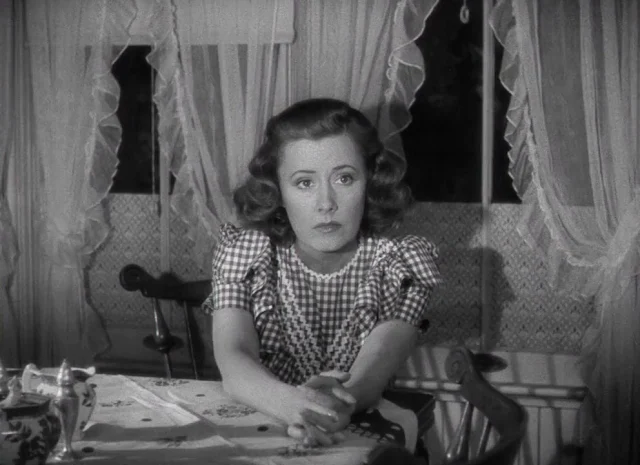 |
| Cary Grant and Jean Arthur in Only Angels Have Wings |
Geoff Carter: Cary Grant
Bonnie Lee: Jean Arthur
Bat McPherson: Richard Barthelmess
Judy McPherson: Rita Hayworth
Kid Dabb: Thomas Mitchell
Lee Peters: Allyn Joslyn
Dutchy: Sig Ruman
Director: Howard Hawks
Screenplay: Jules Furthman
Cinematography: Joseph Walker
Art direction: Lionel Banks
Film editing: Viola Lawrence
Music: Dimitri Tiomkin
Thomas Mitchell had begun his acting career on stage, making his Broadway debut in 1916. It would be 20 years before he decided to leave the stage for Hollywood, and three years after settling there he found himself performing in no fewer than five of 1939's top movies:
The Hunchback of Notre Dame (William Dieterle),
Gone With the Wind (Victor Fleming),
Mr. Smith Goes to Washington (Frank Capra),
Stagecoach (John Ford), and
Only Angels Have Wings. He won an Oscar for
Stagecoach, and four of the five films in which he appeared were nominated for the best picture Oscar. As it happens, the one film that didn't get nominated,
Only Angels Have Wings, is my favorite of the bunch. That it wasn't nominated may have had something to do with its director, Howard Hawks, who refused to be tied down to any one of the major studios, feeling that he had been burned by a dispute with production head Irving Thalberg at MGM. For the rest of his career he made the rounds of the studios, producing and directing (and often writing without credit) some of the most enjoyable movies ever made. But he was nominated for the best director Oscar only once, for
Sergeant York (1941), which has its Hawksian touches -- fast-paced dialogue and deft use of character players like Walter Brennan, Margaret Wycherly, Ward Bond, and Noah Beery Jr. -- but is more sentimental than typical Hawks films. In fact, Hawks must hold some kind of record for classic films that received no Oscar nominations at all, including the great gangster film
Scarface (1930) and the dizziest of screwball comedies --
Twentieth Century (1934),
Bringing Up Baby (1938), and
His Girl Friday (1940) -- as well as the definitive Marilyn Monroe vehicle,
Gentlemen Prefer Blondes (1953) and the films that stand as landmarks in the careers of Humphrey Bogart and Lauren Bacall,
To Have and Have Not (1944) and
The Big Sleep (1946). He finally got an honorary Oscar in 1975, after having been discovered by the French critics of
Cahiers du Cinéma and American auteurist critics like Andrew Sarris.
Only Angels is prime Hawks, with a sterling cast that includes not only Mitchell, as the aging pilot known as "Kid," but also Cary Grant and Jean Arthur. They bring a touch of the screwball comedy at which they excelled to what is essentially a serious story about the grace under pressure shown by fliers in a small South American port town who have to battle the weather to fly the mail across the Andes. Hawks and screenwriter Jules Furthman take the familiar "you can't send the kid up in a crate like that" premise and turn into something both funny and moving. The key is that that they refuse, like the pilots in their movie, to take anything really seriously, so the light touch keeps the peril and loss from bogging the film down. There is a startling moment near the end when we see tears in Grant's eyes, but the movie swiftly moves to a lighter-hearted conclusion. There is some corny artifice in the settings and flying sequences, and perhaps a little too much about the relationship between the characters played by Rita Hayworth (pushed on Hawks by Columbia studio head Harry Cohn) and Richard Barthelmess. Some see
Only Angels as a kind of rough draft for
To Have and Have Not, and Jean Arthur, who clashed with Hawks about her character, said she didn't understand what he wanted until he saw that later film. But
Only Angels Have Wings stands on its own.




































